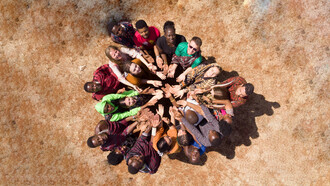In a world overflowing with plentiful information and a deluge of perspectives, the acumen of critical thinking takes even more unprecedented importance. Critical thinking is about making sense of a complex situation, solving problems effectively, and making clear-headed decisions. For the blossoming student, professional, or any individual getting on with life, the power that comes from skills developed in critical thinking can be very empowering.
Critical thinking is thus an examination of observation and judgment in an objective analysis of the facts. This is an evaluation of data, facts, observable phenomena, and research findings. What the critical thinker does, besides anything that may be done by others, is question the assumptions underlying an argument, weigh evidence, and examine the logical linkages between ideas. They weigh alternative explanations and the consequences of decisions, which in turn makes them more thoughtful and deliberate about their choices.
One cannot really overestimate the extent to which critical thinking plays a role in daily life. Put simply, it is at the centre of making a decision, for it will direct the individual to look around carefully and ultimately determine the best course of action. Instead of making decisions haphazardly, critical thinkers consider the pros and cons of each option and the potential consequences and then make the most reasonable and beneficial decision. This approach decreases the likelihood of mistakes while increasing the chances of getting a better result.
Then also, motivation to realise critical thinking tends to provide the answer to most problems. Life is a myriad of problems, all of which must be solved, from the tiniest of irritations to major crises. Critical thinkers are thus well-equipped to break such problems down in analysis, investigate their possible origins, and develop solutions that feel just right. They do not jump into conclusions but rather waltz on with studied arrests at each phase, covering their bases along the line.
One more need to be in a position to think critically in the present day is when dealing with the gigantic flows of information in the digital era—it is rather hard to distinguish the truth from opinion or falsehood. Critical thinking helps one to understand the grounds, due to which the sources in question are considered to be reliable, apprehend the reasons behind introducing the information, and finally get the idea of whether this information is really true or not. We can avoid being misled and make informed decisions based on accurate knowledge through the questioning of the validity of information and the search for evidence in support of positions.
Another field where critical thinking influences is effective communication—more so because it provides logical clarity in thought, enabling a person to put things across well and also argue for their perspective. Critical thinkers are good communicators because they clearly understand what they believe and also have figured out how to deal with objections. This is keenly desired in areas of employer–employee relationships, business, and personal relationships, considering good communicators are also the best persuaders.
If you want to be a good critical thinker, it is going to come with time and a great deal of practice. That is time and effort well spent because being a good critical thinker is among the best help for your faculties in deducing things well, coming up with good decisions, and problem-solving. One of the easiest ways to get started thinking in a critical way is to ask questions. Rather than just accept that it is a fact, ask why and what evidence is there to support it and how does it fit into something bigger? Questions like "What if?", "Why?" and "How?" crosses the mind deep and delve into a matter, helping one attempt to know more about a specific topic and to understand it in more depth—beyond what is clearly obvious.
The other crucial aspect of critical thinking is to analyse the assumptions. Everyone has some or other form of assumption with which he perceives the world. A critical thinker comes across all these assumptions and determines their validity. For example, you assume that a friend is angry with you because she didn't return your phone call; a critical thinker would look for other reasons she may not have gotten back to you and gather evidence before he concluded. Questioning assumptions enables us to be open to other alternative possibilities and probabilities of correctly perceiving a situation.
Considering alternative perspectives is important in developing critical thinking. A good thinker, with the right critical frame of mind, shows interest in opinions that are in opposition to his own and seeks reasons behind the opinions. This, in turn, will help us to have a more balanced understanding of issues so that the actions we take are equally balanced. This approach can be very good in nurturing openness of mind and appreciation for the variety of thoughts and experiences that shape our world.
The other strong tool for empowering critical thinking is self-reflection. Much can be understood regarding one's cognitive process by reflecting upon how regular decisions and problems come to be solved. It is possible for us to understand the approach taken and be in a better position to note any kind of bias and prejudices that may be stemming as a part of our thought process in order to work upon them in a conscious manner.
Engaging in debates will also challenge us because, specifically, engaging in discussions and debates with other people will give us different viewpoints. Debates will make one be very cautious of their stand, carefully listen to the opposing side, and raise reaction. Such exercises sharpen not only one's critical thinking attribute but also communication and persuasive ability.
Another good way to enhance your critical thinking skills is through wide and critical reading. This is made possible by exposing ourselves to various materials, from news articles to books, since we are given various ideas and perspectives. In your reading, you get a chance to practice critical thinking by checking on the credibility of the sources, scrutinising the arguments, and checking the evidence used to back these arguments. This practice makes a person a keen information consumer and an improved critical thinker.















